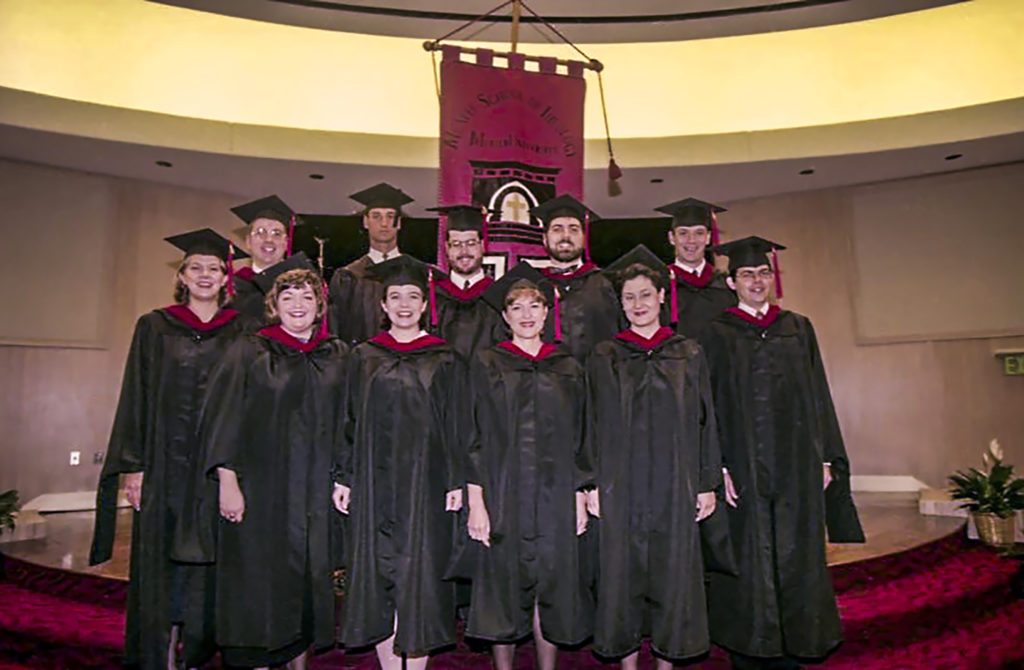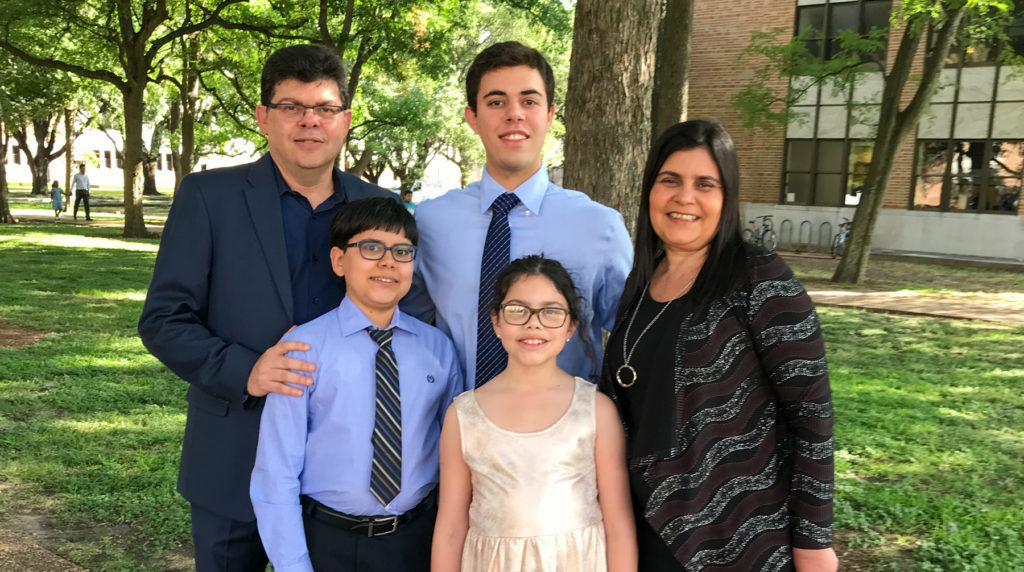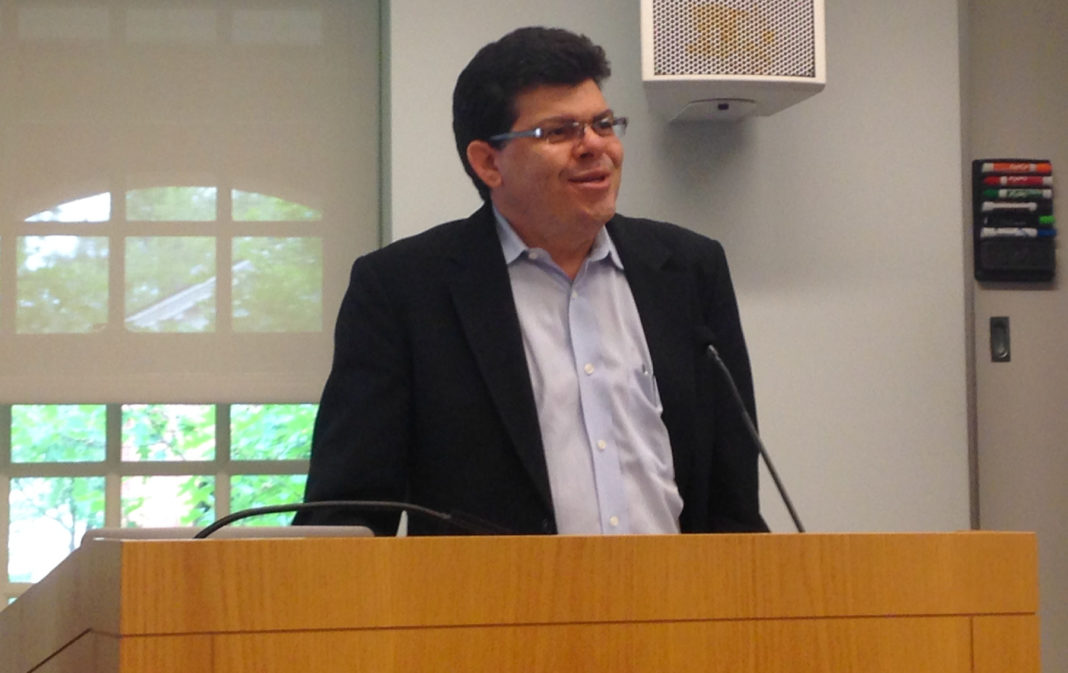Dr. Raimundo Barreto Jr. was pursuing his master’s degree at the International Baptist Theological Seminary in Prague when some changes at the seminary left him looking for a new school where he could finish his studies.
With the help of his professors, who had connections with schools in the Cooperative Baptist Fellowship, his search led him to the McAfee School of Theology at Mercer University. The school had only been open two years, but Dr. Barreto immediately found a home there.
“It was my first time in the U.S. I was somebody who was in the process of learning English,” said Dr. Barreto, who is originally from Brazil and a native Portuguese speaker. “I had left Brazil a year earlier to go to Prague, and at that point was entering the U.S. So, it was a transitional time for me.
“And McAfee — and by McAfee, I mean the faculty, staff — and churches in the area were very supportive and welcoming to me.”
When he graduated with a Master of Divinity in 1999, he became part of the School of Theology’s first graduating class.
“It was an honor to be a part of the first class,” he said. “At the same time, I faced the challenges of transition. It was the first class. I was probably the only non-American person, the only non-white person in that class. It was also, in some ways, a time of learning, adjustment and transition.
“And to some extent I think I was also helping push the boundaries and expand what McAfee has become over the years, a very diverse school with a good and diverse student body and faculty, which was beginning to shape at the time.”

Dr. Barreto felt the call to be a pastor early in life, but it was during his theological studies that he discovered his vocation, he said.
“I began to understand my pastoral role as including the role of being an organic theologian, somebody theologizing with the community, with the church,” he said. “But at the same time, I wanted to be part of contributing to the formation of others.
“I wanted to be also in the position of teaching and research and contribute to developing new knowledge, and so that’s what led me to pursue a Ph.D.”
He studied at Princeton Theological Seminary, earning a Ph.D. in religion and society in 2006.
He then went on to teach at the Seminário Teológico Batista do Nordeste and Faculdade Batista Brasileira in Brazil and served as director of the division on freedom and justice at the Baptist World Alliance.
Through the Baptist World Alliance, Dr. Barreto worked with issues of religious freedom and persecution. He traveled the world, sometimes running workshops, like a two-day session in Nigeria on conflict resolution involving Muslims and Christians.
“That kind of workshop was the teaching that I could do at that time, and I loved that experience,” he said. “But during those years, I missed the classroom and the opportunity to invest in people’s long-term formation. I wanted to contribute to the formation of others who would be spending their whole lives in positions like that which I was occupying at the time.”

In 2014, Dr. Barreto joined the faculty at Princeton Theological Seminary, where he is now an associate professor of world Christianity. The field of world Christianity developed in the last 30 or so years to reflect the demographic and cultural changes Christianity has experienced over the last century.
“It’s not only a matter of numbers — everybody already knows that there are more Christians today in the global south than in Europe and the United States combined — but it’s a mirror of what that means for Christian identity in different contexts — for theology, for the study of the church, for ecclesiology, for an understanding of mission,” he said. “It’s about how we think about our Christian identities, what we do and how we relate to one another.”
Dr. Barreto said he helps his students understand Christianity as a non-Western religion. Until recently, Christianity was taught with a Eurocentric focus.
“This has basically changed, and we assume the process of thinking about the implications and the consequences of those changes,” he said, at the same time pointing out “the need of acknowledging the diverse theological voices that are emerging in the world today, diverse perspectives on reading the Bible, embracing of Christianity now without the need for one to turn their backs to their native cultures.”
His teaching and research interests also include ecumenics, or Christian unity; Latin American and Latinx religions; intercultural theologies; interfaith relations; and liberation and decolonial theologies.
Mercer’s School of Theology helped nurture these interests.
“McAfee was crucial for what I would pursue in terms of providing me community, examples, companionship, support and also a space where I could think as a young Baptist pastor, considering my options in a space of freedom and growing diversity,” he said.
The McAfee School of Theology was founded 25 years ago on Mercer’s Atlanta campus. The Den is sharing alumni profiles throughout the year to mark this milestone anniversary.










